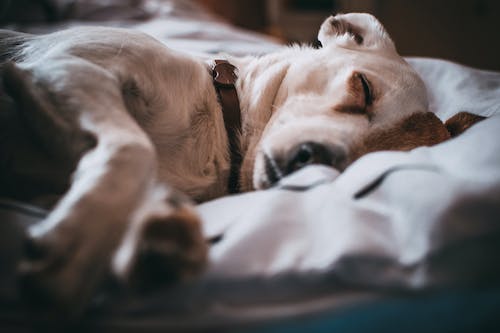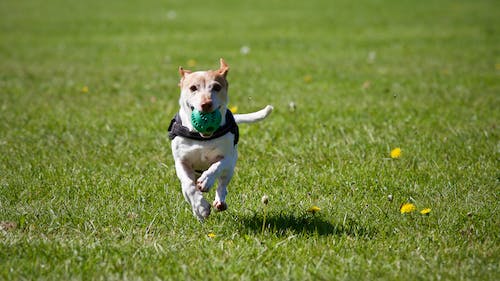Please create a free account, or login by clicking here.
Petland Lexington, Kentucky
June 16, 2023
As we age, we often find that we sleep less deeply at night which results waking up in the morning not feeling well rested. This causes many of us to try and sneak a nap in sometime during the day to regain some energy. The Sleep Foundation advised that healthy adults should receive between seven to nine hours of sleep every night. If it were only that easy to accomplish!
Most dogs don’t have that issue and generally spend twelve to fourteen hours each day dreaming about their favorite fire hydrant or tree! Dogs need an ample amount of shuteye to look and feel their best. Puppies need even more sleep as their bodies and minds are constantly growing and developing. The average puppy will sleep between fifteen and eighteen hours every day.

Although all dogs have different sleeping patterns, the following may cause them to need more sleep than normal.
Age – Puppies and senior dogs tends to need more sleep.
Dog breed – Certain dog breeds just enjoy extra sleep. (List found below.)
Stress and anxiety – Separation anxiety, etc.
Activity Level — Does the dog spend a lot of time burning off energy VS lounging.
Thyroxine deficiency — Hormone related health issue.
Diabetes — Health issue.
Bacterial infection — Health issue which needs to be treated.
Viral infection — Health issue which needs to be treated.
Anemia — Health issue which needs to be treated.
Poisoning — Emergency care issue which needs to be treated.
Much like their human family members, dogs also go through different sleep cycles each day. The initial stage for a dog is a slow, quiet and peaceful sleep. Your dog’s body temperature will begin to lower as will his heartrate. This stage is the most relaxing stage for your pup. About ten minutes later, he will enter into a REM phase (Rapid Eye Movement). Dog owners may take notice that their pup actually appears to be trying to run or move around at this time. Their entire sleep cycle is fairly quick, lasting just under one hour.
Here are a few very basic but effective ways to help your fur-legged friend establish a good bedtime routine which may help him achieve the sleep he needs.
Dogs tend to do best if they have a good and consistent routine. If their schedule is sporadic, getting used to things is more difficult. Try having your pup calm down by a certain time each evening by lowering the TV, not playing with him, and easing the overall activity time inside your home.

Keeping your pup active will naturally allow him to burn off extra energy and feel tired at bedtime. A pup that has sat around all day may have trouble getting comfortable at night when everyone else goes to bed.
A Good Feeding Schedule Many dog owners find that keeping their pup’s feeding schedule on set times allows them to not only have healthy pups, but pups that have set potty times. Once a dog forms a good feeding time routine his potty times generally remain consistent. Normally once a pup does his business in the early evening hours, he is safe until the next morning. Feeding your dog later than normal may cause him to have to go outside later than normal which will keep him up.